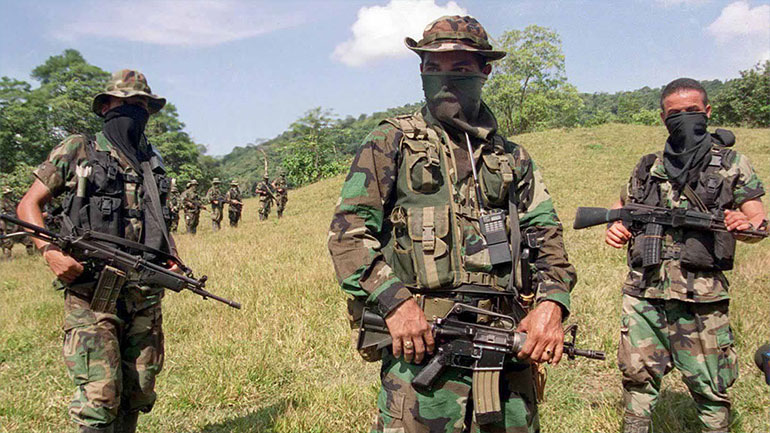The United Nations, in charge of monitoring a future peace deal between Colombia’s government and FARC rebels, warned Monday about a possible surge in violence by paramilitary successor groups if the FARC demobilizes.
According to the UN, “armed post-demobilization groups and aligned actors constantly undermine human rights and public security, the administration of justice and the construction of peace, including the restitution of land” to farmers who fled their properties during the conflict.
The UN presented its annual report on Colombia in which it said that “the groups who control abandoned lands through violence and threats constitute a permanent challenge to peace.”
Colombia’s largest paramilitary organization, the far-right AUC, demobilized formally between 2003 and 2006.
However, some mid-level members of this group, allegedly on the order of founder Vicente Castaño, remained in arms and founded groups like the Urabeños, the Libertadores de Vichada and Bloque Meta.
Since their formation, these groups have become Colombia’s primary human rights violator.
The UN urged Colombian authorities to effectively combat these groups who, according to the UN, are vying to occupy FARC territory and usurp the guerrillas’ illegal businesses in the event of the rebels’ demobilization.
The FARC, like the neo-paramilitary groups, fund themselves through criminal activities ranging from extortion to transnational drug trafficking.
The guerrillas have long called on the government to “dismantle paramilitary structures” that have allegedly remained in tact in spite of the formal demobilization of the AUC.
According to the United Nations, this is key to the success of the peace process.
“Based on international experience, it is possible to prevent that the end of hostilities and the demobilization of the guerrillas create power vacuums and disputes over the control of illicit income {profits from drug trafficking, extortion, human trafficking, prostitution, mining, stealing state resources, etc.)” said the UN.
The neo-paramilitaries have been increasing their control over Colombia’s national territory and attacks on rights leaders “without a sufficiently effective state response.”
The UN went as far as claiming that the neo-paramilitary groups are supported by “diverse local interests and groups who oppose the changes promoted by a peace process.”
The government has carried out major offensives, particularly against the Urabeños neo-paramilitary group, but without much effect.
In the years, the administration of President Juan Manuel Santos has been talking peace with the FARC, the country’s largest paramilitary successor group has doubled its territory and has begun settling in traditional FARC territory in the center of the country.
The FARC is expected to demobilize in a matter of months, maybe even weeks. The group at that point will unite its troops in specially designated demobilization areas.
The guerrillas, who have financed their 51-year-long war with the state primarily through drug trafficking, kidnapping and illegal mining, have promised to abandon criminal activity, leaving major opportunities for other groups involved in organized crime.
Additionally, dissident guerrilla units or members could decide to ignore the peace process and form new groups exactly as happened with the demobilization of the AUC.


